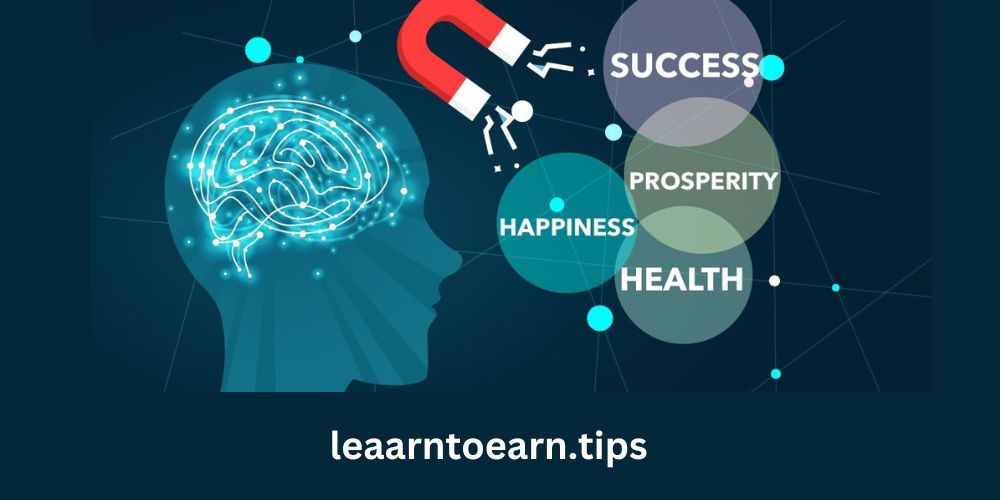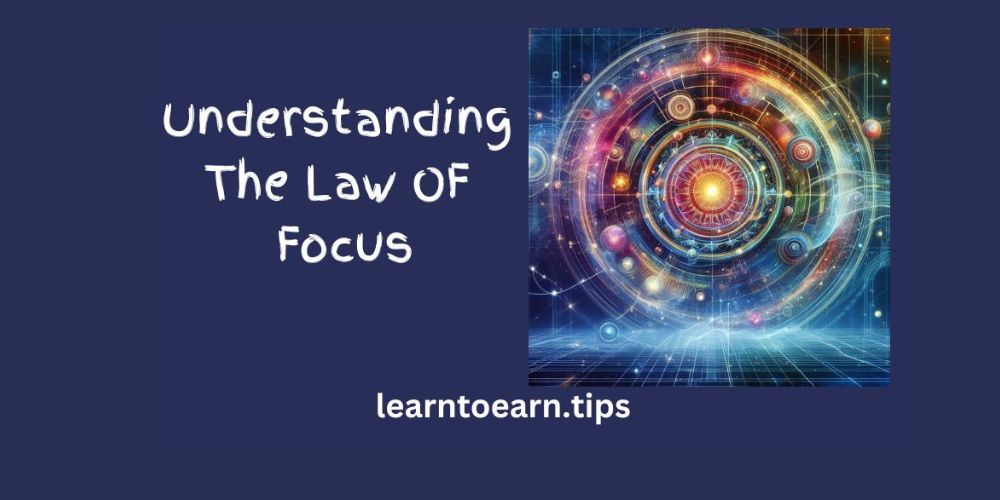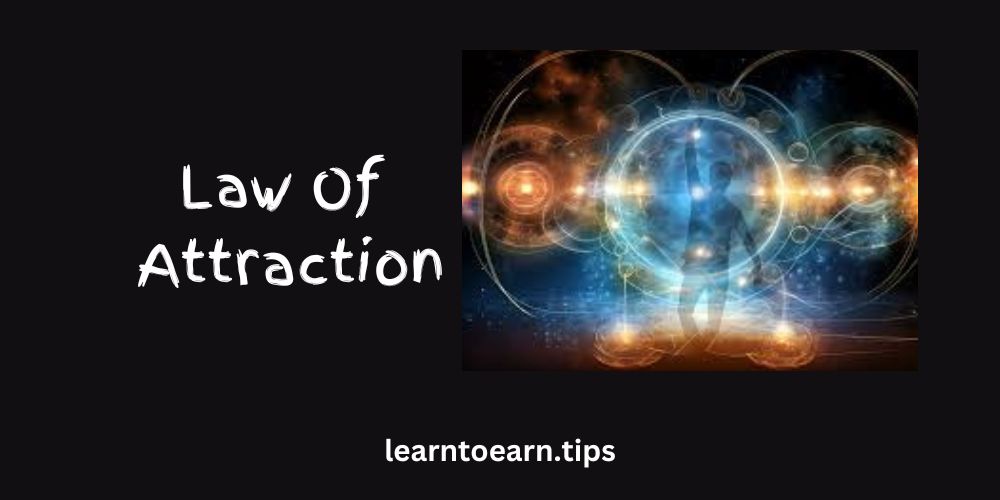If you are looking for exploring the law of focus or law of attraction, you are at right place. In this article you will find the complete details to understand what is law of focus. And also how this law works and how everyone can use this law to attain success in life. We will also discuss its history and limitaions of this law.

You may have heard of the laws of Focus through best-seller book, The Secret. Oprah Winfrey and other celebrities; for instance, Lady Gaga and Steve Harvey who talk about the power of positive thinking. This argument is centered around an idea that positive thinking can lead to positive outcomes.
Well, what does science say about this theory that has gained momentum in recent years? This article discusses the law of attraction in relation to its scope and its effect on mental health.
What Is the Law of Focus?
According to Christy Whitman, a certified-master we can say that law tekks us that like attracts like (Whitman C 2018).
“Albert Einstein gave us E = mc2 which enabled us realize energy and matter are actually one entity. While our tangible universe is based on energy as everything” she adds. She further states “Any thing that physically emerges into existence does so only by virtue of forces with convergent qualities.”
Whitman likens it to when you strike a C chord on a piano. “When you play C#, D or any other key that’s been tuned relative to C quakes. As a result of being played because similar vibrating frequencies cling together,” she explains.
This is the basis for the law of attraction which claims that it links up with energy fields that are harmonious or resonant energetically available.
This means that your thoughts are ultimate reason of every outcome in your life.
The good thinking lead to good things in life, but bad one brings about bad things. In other words, it is better to be hopeful because chances of getting more happiness and success are higher. Additionally, this “law” applies to all aspects of life such as relationships, money matters and health.
These big promises raise one question: Does a real law of attraction exist? In recent years, there has been a lot of interest in the law of attraction through Rhonda Byrne’s “The Secret”. But still it makes sense to delve further. Because for the success with the law of attraction is not magic but it is psychology that is important.
The Laws of Attraction

How does the law of attraction work? In essence, your thoughts’ energy cause your experiences. Positive and negative thoughts draws positive and negative experiences respectively. Supporters say that there are central universal principles which make up the law of attraction, and these include:
Like attracts like:
This law suggests that similar things are attracted to each other. It means that people tend to attract people who think the same as them. But it also suggests that people’s thoughts tend to attract similar results. Advocates claim that negative thinking attracts negative whereas positive thinking results in desirable experiences.
Nature abhors a vacuum:
This law of attraction suggests that taking away the bad can bring good things into your life. The idea is based on the belief that you can never have an empty space in your mind. Therefore, since something will always fill this space, proponents of this philosophy advise filling it with positivity.
The present is always perfect:
This law emphasizes the fact that there are always things we can do to improve the present moment. Although it might seem as if the present is always somehow deficient. This rule states simply instead of feeling dread or unhappiness, pour all our energy into making now as good as it gets.
How to Utilize the Law of Focus in Your Life:
If you are not entirely convinced that this is something you should follow, you can still use such a way of thinking.
“If you walk into a room and say something like ‘What are you looking at, buddy?’ . Or ‘I am happy to see your smiling face. For the next few minutes or so, pretty much, it will become your reality,” Nolan explains. You can generally expect about the same or similar results depending on how you approach the situation.
Here are some more tips from Whitman and Nolan for ‘raising your positive vibes’. And integrating law of attraction in your everyday routine if after all you decide that you would like to know how positivity’s potency can be manifested real time.
Agreed to practice aligning with energy every day:
For instance, meditate, sing out loudly, exercise; spend time outdoors or with children/pets. Write in a journal; listen to uplifting music/ inspirational audio books/podcasts. “Practices like these will support you in clearing your energy field and restoring your nervous system” says Whitman (17).
Stay active on social media:
Stop following people who have negative attitudes or discussions, even block them. In Nolan’s words: “Build up the social media ‘feeds’ that serve best for yourself. Encourage one another [sic], uplift your spirits and inspire.” Trust yourself because using feelings as an internal GPS always tells what feels good as well as what does not.
Keep a Gratitude Diary:
Whitman suggests that gratitude is one of the highest vibrations in the universe . Because it causes us to focus on what we already have which enlarges us and increases our capacity for more. Write down one thing each day for which you are grateful. And give five reasons why you feel thankful for that person/place/thing.
Shorten time spent with negative individuals:
That doesn’t mean you have to participate in “ain’t it awful” conversations. But it also doesn’t mean you have to dismiss negative situations (also known as toxic-positivity) when they arise, according to Nolan. In case you can’t avoid negativity, for example, positive internal self-talk can help you maintain a hopeful outlook.
Mind the way you speak:
Whitman says that “Our words have power and with every word we speak, we are creating a reality we dread or a reality we desire.” To use the law of attraction to manifest them, always speak in favor of your desires and never against them.’ For instance, instead of saying ‘I am afraid this is not going to work out’, turn your statement into ‘each action I take brings me closer and closer to things I want.’
Get ready in advance before going into difficult situations:
Take some time before tough conversation or event starts to get yourself ready mentally. Whitman suggests: “Picture filling yourself with joyous energies, expansion clarity and ease.” “Inhale deeply a few times taking these energies up literally through your vibration and consciousness.” Boosting your frequency beforehand will make it easier for you to retain it later on.
In life, there are only two fundamental positions that one can take towards anything. You either place your focus on what you think is going right or directs it to what you think is not going well. On this subject, Whitman suggests asking “what do I want?” and “what makes me want this?” and “how do I believe I’ll feel when I achieve it?”. According to Whitman, the most empowering thing one can do is to concentrate their positive aspects once they realize that what you focus on expands—i.e., focusing on good things increases the likelihood of more good things coming.
How to Use Positive Affirmations
Impact of the Law of Attraction
Whilst there is no scientific proof supporting the law of attraction; its proponents argue that it can actually change an individual’s life for good. The following are some reasons why people may derive benefits from this philosophy;
Spiritual Effects
This philosophy works by tapping into a person’s spirituality so that they understand themselves better. Spiritualism lead to various health advantages such as reduced stress, improved health state, low levels of depression as well as overall well-being (1).
Some proponents believe that this system operates through aligning God or universe with our wishes. It suggests that all persons comprised of energy which vibrates at varying frequencies. Therefore there is need to switch over such energy into higher frequencies using grateful thoughts; specifically thanking God about what He has already given us.
By having positive thoughts and feelings, being grateful and happy we can change our frequency which brings good things into our lives through “the Law of Attraction”. What we attract depends on where and how we focus our attention, but we must believe that it’s already ours or soon will be.
Better Well-Being
Additionally, the use of law of Focus can lead to positive impacts in mental health. By focusing on creating the reality you want and believing it is possible, you tend to feel more positive about the new life. This means that when we are aware the things are really possible within our world; we encourage ourselves to achieve them because we can realize our dreams.
Our self-talk determines what actions we take and whether they will help us become stronger or weaker. Basically by changing our structures relating to self-talk as well as feelings regarding life; it is quite easy for us to change negative patterns into positive ones which enable people live better lives. One good thing leads to another, thus a person’s life can alter from an awful nosedive into a beautiful soaring.
“Our thoughts influence our emotions and behaviors, so we need to be mindful of the words we use when speaking to ourselves. Our self-talk can become our reality,” says Rachel Goldman, PhD
Research has shown that being optimistic has many significant health benefits such as higher levels of happiness; greater achievement in school, sports and work; improved physical well-being; increased longevity; and lower rates of depression (2).
Many kinds of therapy are based on the idea that changing your self-talk can be really helpful to live a better life. For example, cognitive-behavioral therapy (or CBT) is successfully used in treatment of many conditions in which negative automatic thoughts have to be identified and changed to achieve overall mental well-being.
Golman furthermore states, “And it shows when we feel good about ourselves! If we feel good about ourselves, our appearance also improves and instead become magnet attracting similar people.”
Tips for Practicing the Law of Attraction

There are several exercises that individuals can try in order to learn how to apply the law of attraction into their lives. A few examples include:
Journaling:
Writing your thoughts down helps you know yourself better by knowing if you tend towards optimism or pessimism thus assisting individuals change negative thought patterns more effectively.
Create a mood board:
Assist in keeping a happy outlook, staying inspired, and keeping your goals in focus by creating a visual reminder.
Develop acceptance:
Try accepting things as they are rather than dwelling on what is wrong with the current situation or what ought to be altered. This just implies that you won’t let your want for a different present day stand in the way of your continued efforts to create a better tomorrow.
Engage in constructive self-talk:
If you find it difficult to be too critical of yourself, make it a daily mission to speak to yourself positively. With time, you could find that this comes much more naturally and that it becomes more difficult to keep a pessimistic outlook.
Possible Drawbacks of the Law of Focus
One issue with books like “The Secret” and some people’s interpretation of the law of attraction is that it implies it’s just a belief—without any kind of action—that good things will come to us and bring us whatever we want.
Optimism is the mindset that propels proactive actions, which in turn yield such amazing outcomes for optimists. True change is not brought about by optimists’ attitudes alone; rather, it is the conduct these attitudes encourage.
It’s crucial to have things like goals, mindfulness, commitment, motivation, timelines, challenges, and support for beliefs to influence behavior.
Beyond Control?
The very real worry that people would begin to blame themselves for unfavorable events that are beyond their control, including accidents and injuries, layoffs brought on by a financial slump, or serious illnesses, is also raised by critics of “The Secret” and other works about the law of attraction.
Though our circumstances are sometimes beyond our control, we do have power over how we react to them. Accordingly, the law of attraction can offer the positivity and proactive mindset linked to perseverance in trying circumstances, but it shouldn’t be applied as a means of assigning responsibility to oneself.
How You Respond
You can get stronger by how you respond to the obstacles you encounter. When it fosters such power, the law of focus can be helpful in that sense. It should not, however, be used improperly since this could have more detrimental effects than beneficial ones.
Past Events
The idea behind the law of attraction is not very new, despite garnering a lot of attention in recent years. These concepts have intellectual roots in the “New Thought” movement of the early 19th century.
The concept saw a renaissance in the 20th century, especially after the publication of the film “The Secret” in 2006. The film’s success led to the development of a best-selling book with the same name and its 2010 sequel, “The Power.”
Conclusion:
The Law of Focus is one way to succeed and fulfill our personal and professional lives. We can make good use of our resources and our efforts by narrowing them down to a specific area of interest or goal. In this regard, the ability to focus enables us to set priorities, block out distractions and direct our energy towards what really counts in order to unlock that potential within ourselves which leads us to meaningful achievements. Let us not forget how much focus has changed lives in modern society as we try dealing with its complexities so that we can achieve success and happiness.
FAQS Regarding Law Of Focus:
Q-1: What is the Law of Focus?
The Law of Focus, a rule that insists that one should attach attention to a single point or goal in order to succeed and be happy.
Q- 2: How does the Law of Focus apply to everyday life?
In real-world application, it means prioritizing activities, eschewing distractions thus concentrating on what matters. This way, people will be able to increase their productivity and achieve significant milestones on their journey towards accomplishing their purposes.
Q- 3: Why is focus important?
Focus helps individuals streamline their resources thereby ensuring they are productive, efficient and desired results are achieved. It also helps avoid being scatter-brained and ensures that all efforts are directed at long-term objectives.
Q- 4: How can one develop focus?
Developing focus requires training and self-control. They include setting specific goals, creating an amenable environment for work or study, practicing mindfulness and eliminating interruptions among others.
Q-5: What are the benefits of applying the Law of Focus?
Application of this rule can lead to higher yields in terms of productiveness, clarity about targets, enhanced time management skills as well as better performance hence satisfaction from advancement toward set objectives.
Q- 6: Can the Law of Focus be applied to different aspects of life?
Certainly! In all aspects such as career progression, personal growth ,relationship building ,physical fitness etc. Professionals channelize themselves towards relevant areas as needed so as to derive maximum advantage out of any situation within these spheres.
Q- 7: How does the Law of Focus differ from multitasking?
Unlike when you multitask doing several things together , focus law suggest dedicating your mind only onto something at ago . Through this approach , deeper concentration is then attained leading to more successful execution hence great outcomes .
Q-8 : Common challenges to maintaining focus?
Some common problems faced by those seeking persistence include unnecessary distracters like TV or cell phones that distract attention and time. These stumbling blocks call for tactics that control even the most disruptive of all these devices, keep the to-do-list current and always set sights on future.
Q- 9: How can one stay motivated while practicing the Law of Focus?
How do you maintain morale when following this law? This happens by regularly going back to one’s goal, appreciating the milestones made, finding people who will support you at each step and remember how it has helped others before.
Q-10 : Is the Law of Focus applicable to everyone?
Yes focus is a universal principle which is relevant to every individual regardless of their origin, occupation or personal situation. For those who are ambitious in life whether it’s about career promotion or personal well-being both being possible through focus.




